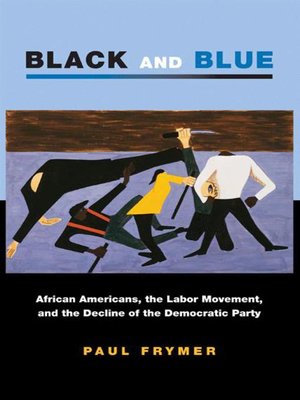Black and Blue
ebook ∣ African Americans, the Labor Movement, and the Decline of the Democratic Party
By Paul Frymer

Sign up to save your library
With an OverDrive account, you can save your favorite libraries for at-a-glance information about availability. Find out more about OverDrive accounts.
Find this title in Libby, the library reading app by OverDrive.



Search for a digital library with this title
Title found at these libraries:
| Library Name | Distance |
|---|---|
| Loading... |
In the 1930s, fewer than one in one hundred U.S. labor union members were African American. By 1980, the figure was more than one in five. Black and Blue explores the politics and history that led to this dramatic integration of organized labor. In the process, the book tells a broader story about how the Democratic Party unintentionally sowed the seeds of labor's decline.
The labor and civil rights movements are the cornerstones of the Democratic Party, but for much of the twentieth century these movements worked independently of one another. Paul Frymer argues that as Democrats passed separate legislation to promote labor rights and racial equality they split the issues of class and race into two sets of institutions, neither of which had enough authority to integrate the labor movement.
From this division, the courts became the leading enforcers of workplace civil rights, threatening unions with bankruptcy if they resisted integration. The courts' previously unappreciated power, however, was also a problem: in diversifying unions, judges and lawyers enfeebled them financially, thus democratizing through destruction. Sharply delineating the double-edged sword of state and legal power, Black and Blue chronicles an achievement that was as problematic as it was remarkable, and that demonstrates the deficiencies of race- and class-based understandings of labor, equality, and power in America.







